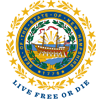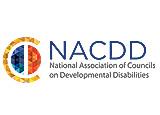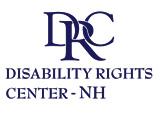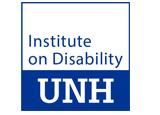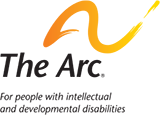Welcome to the NH Council on Developmental Disabilities
“Dedicated to the pursuit of dignity and justice, authentic community inclusion, cultural competency, and self-determination for all New Hampshire residents with developmental disabilities.”
The New Hampshire Council on Developmental Disabilities is a federally funded agency that supports public policies and initiatives that remove barriers and promote opportunities in all areas of life. The Council is independent of the agencies that provide services to people with disabilities. The Council develops a State Plan every five years to establish specific goals, objectives and strategies to address the most important issues affecting people with developmental disabilities in New Hampshire. The Council carries out its mission through education, advocacy and the funding of innovative projects that make a difference in people's lives.
NHCDD projects, publications, programs, and informational outreach sources are 100% federally funded through the US Administration for Community Living, Department of Health and Human Services, Washington DC., under grant 2301NHSCDD-01 totaling $ 527,570. Points of view or opinions do not necessarily represent official ACL policy.
Want To Show Off An Accessible/Inclusive Aspect Of Your Community?
The NH Council on Developmental Disabilities (NHCDD) is looking for nominations for the NHCDD Community Inclusivity Showcase of the Month from communities throughout the Granite State.
Submission steps:
- Download and fill out the Community Inclusivity Showcase Nomination Form.
- Either:
- Email the completed form to Chase.G.Eagleson@DDC.NH.Gov, or
- Mail the form to 2½ Beacon Street, Concord, NH 03301
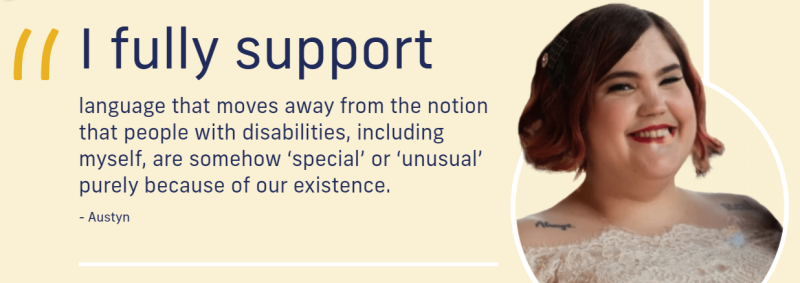
DD Partners Introduce the Stop Special Campaign!
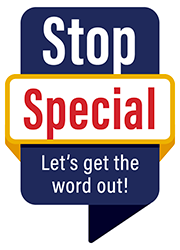
Breaking News!
Disability Rights Organizations Across the Nation Commit to “Stop Special”
In anticipation of Disability Pride Month, disability organizations join advocates in launching Stop Special, calling for an end to the word “special” to describe people with disabilities. The campaign is grounded in feedback received from people with disabilities and reflects their opinions and preferences. Although still used in law and public policies, the term “special” is increasingly considered condescending and offensive to disabled people and their allies.
“We are not special. We are brave and we are cowards. We are strong and we are weak. We are kind and we are cruel. We are persistent and we are lazy. We are human. We are not special. We deserve equitable access to our schools, communities, health care and housing. Not special spaces and programs that continue to segregate and ostracize us. No more special!” said Jim and Pat Piet, members of the disabled community.
Calling disabled people “special” sets them apart from others and can imply they are somehow broken, less than, or deficient. Language is evolving, and like the R-word before it, the time has come to honestly discuss and understand how euphemisms like “special needs”, “special education” and “special” more generally, harm and undermine the long-term fight for disability rights, equality, and justice.
“We recognize that this may not be an easy change, especially for those of us who regularly work with laws and regulations that contain this term. Mainstream rejection of the r-word has taught us that it can take years for the law to catch up to the community,” said Stephanie Patrick, Executive Director of the Disability Rights Center - NH.
“It comes down to this, people with disabilities have asked us not to call them ‘special’ and that is reason enough for us.” said Isadora Rodriguez Legendre, Executive Director of the NH Council on Developmental Disabilities.
The Stop Special campaign is supported with funding from the New Hampshire DD Act partners – the Institute on Disability at the University of New Hampshire, Disability Rights Center – NH, and the NH Council on Developmental Disabilities. Together, these partners support people with disabilities as they participate in all aspects of community life.
Visit StopSpecial.org to access tools and resources and Take the Pledge to get the word out and end the use of this harmful term.
The Directors of the DD Act Partnership, Isadora Rodriguez-Legendre, Stephanie Patrick, and Kelly Nye Lengerman have taken to the airwaves to launch the Stop Special Campaign, advocating for evolving the language we use when talking about disability.
Some of the New Hampshire organizations that have signed the Stop Special pledge include:
- ABLE NH
- ACLU of New Hampshire
- 603 Legal Aid
- Assistive Technology in NH (AT in NH)
- Community Bridges
- Strategies for Disability Equity, LLC
- Employment Leadership Awards Committee
- Moms Rising NH
- New Hampshire Legal Assistance (NHLA)
- Northeast Passage
- NH Office of the Child Advocate
- People First NH Self Advocate Leadership Team (SALT)
- NH Federation of the Blind
- NH Developmental Disabilities Quality Council
- Waypoint
Some of the organizations across the country that have signed the Stop Special pledge include:
- National Center for START Services (NCSS)
- National Disability Rights Network (NDRN)
- Disability Rights Michigan
- The Arc Michigan
- Michigan Developmental Disabilities Institute
- Disability Rights North Carolina
- Disability Rights DC
- Disability Rights Maine
- Disability Law Center (MA)
- Disability Rights Montana
- Disability Rights Mississippi
- Disability Rights Iowa
- Disability Rights Rhode Island
- DHHS – The Nebraska Council on Developmental Disabilities
- Ocean County College – Office of Disability Services (NJ)
- Heritage Christian Services (NY)
- Reaching Maximum Independence (TN)
 Congratulations to the 2024 Direct Support Professional and Home Provider of the Year award winners!
Congratulations to the 2024 Direct Support Professional and Home Provider of the Year award winners!
Direct Support Professional of the Year is Rebecca Dumoulin from Northern Human Services.
The Home Providers of the Year are Beckie and Cedric Robb from Community Choices.
The DSP Awards Planning Committee would like to reflect on the incredible impact that Direct Support Professionals and Home Providers have on the lives of the people they support. Your commitment and dedication bring us closer to living out the promise that people with disabilities can live, work, play, and dream in their community.
 Check out our latest issue of Stepping Stones Magazine!
Check out our latest issue of Stepping Stones Magazine!
Stepping Stones sheds light on what it truly means to live an inclusive life!
This issue includes our updated, disability network resource guide.
If you are interested in being on the Stepping Stones Magazine or Disability RAPP mailing list, please email Vanessa.A.Blais@ddc.nh.gov.



